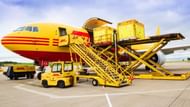The Formula 1 season was originally due to start on 13 March 2020 with the Australian Grand Prix. In early March, the threat of the coronavirus was growing at an alarming pace but hadn't reached pandemic proportions as it has now.
The Fédération Internationale de l'Automobile (FIA), F1 management, and Liberty Media dilly-dallied for a long time until their hands were forced by the teams, who were very reluctant to carry on as usual.
McLaren pulled out of the opening race and the other nine teams were sounding very non-committal to race in Melbourne to kick-off the season. The teams were all in Albert Park for the race when the Grand Prix was called off just two hours before the start of Free Practice 1.
Both Ferrari (in Maranello) and Alpha Tauri (in Faenza) have factories in Italy, one of the most badly affected countries in the world. It quickly became clear that things can't carry on as normal and there would be an indefinite postponement, as the pandemic rapidly spread to a majority of the nations.

It is especially difficult to carry on with a sport like F1 because it is a travelling sport spanning several months, critically depending on logistics and support crews who travel throughout the entire season.
Furthermore, critical car parts are often flown in from the bases and factories of teams in Europe. With commercial flights being inoperational due to airport lockdowns and countries having a no-fly policy, there was bound to be a further lag until the season could commence.
At the time of writing, the start of the season was postponed until 7 June 2020, with the Azerbaijan Grand Prix in Baku expected to host the first race. Australia and Monaco are the two races which stand cancelled. The season, which was originally due to be contested over 22 Grands Prix, will now have a maximum of 20 races.

But even that number is uncertain as there is no guarantee that all postponed races (Bahrain Grand Prix, Chinese Grand Prix, Spanish Grand Prix, Dutch Grand Prix, Vietnamese Grand Prix) can be held on later dates. If the postponed races are cancelled, the season can possibly comprise of 15 races.
Only in the recent past has the F1 season been extended to include 20 races. A 15-16 race calendar used to be the norm in the 2000s and 2010s.
The three-week-long summer break in August has been brought ahead to March-April, so that the usual period when the factories have their mandatory shutdown can be used to include the postponed races through a rejig of the schedule.
If so, then the season is expected to have a lot of triple headers, with the races in Europe getting bunched together.
The possibility of having a TV-only event without the crowd cannot be a possibility whatsoever, as it will lead to financial doom. The sport depends on the crowds to bring in the revenue on racing weekends.
Ex-F1 driver-turned-commentator Martin Brundle told Sky Sports that a representative season can still be held - with races coming thick and fast.
Although, Brundle was quick to state that going ahead with the races without the fans would just not be a feasible scenario for the circuits or the sport. Brundle said:
"I think if we do get up and running I could easily see 16 or 17 races, just coming thick and fast, triple-headers, quadruple-headers, maybe one week off and then go again. They’ll (FIA) shorten the weekend, maybe, just to two days rather than three. The thought for great circuits like Silverstone, running a race but having no crowd, they just can’t do that, they’ll go broke frankly."

Per F1 CEO Chase Carey, the FIA and Liberty Media have full authority of coming up with an alternative race schedule, with all the 10 teams agreeing to give them full control over a new calendar for 2020.
"Formula 1 and the FIA will now work to finalise a revised 2020 calendar and will consult with the teams, but as agreed at the meeting, the revised calendar will not require their formal approval. This will give us the necessary flexibility to agree revised timings with affected race promoters and to be ready to start racing at the right moment."
As of now, the schedule is up in the air. However, if the virus, its fatality and spread are brought under control, the F1 season can have a truncated yet action-packed season.